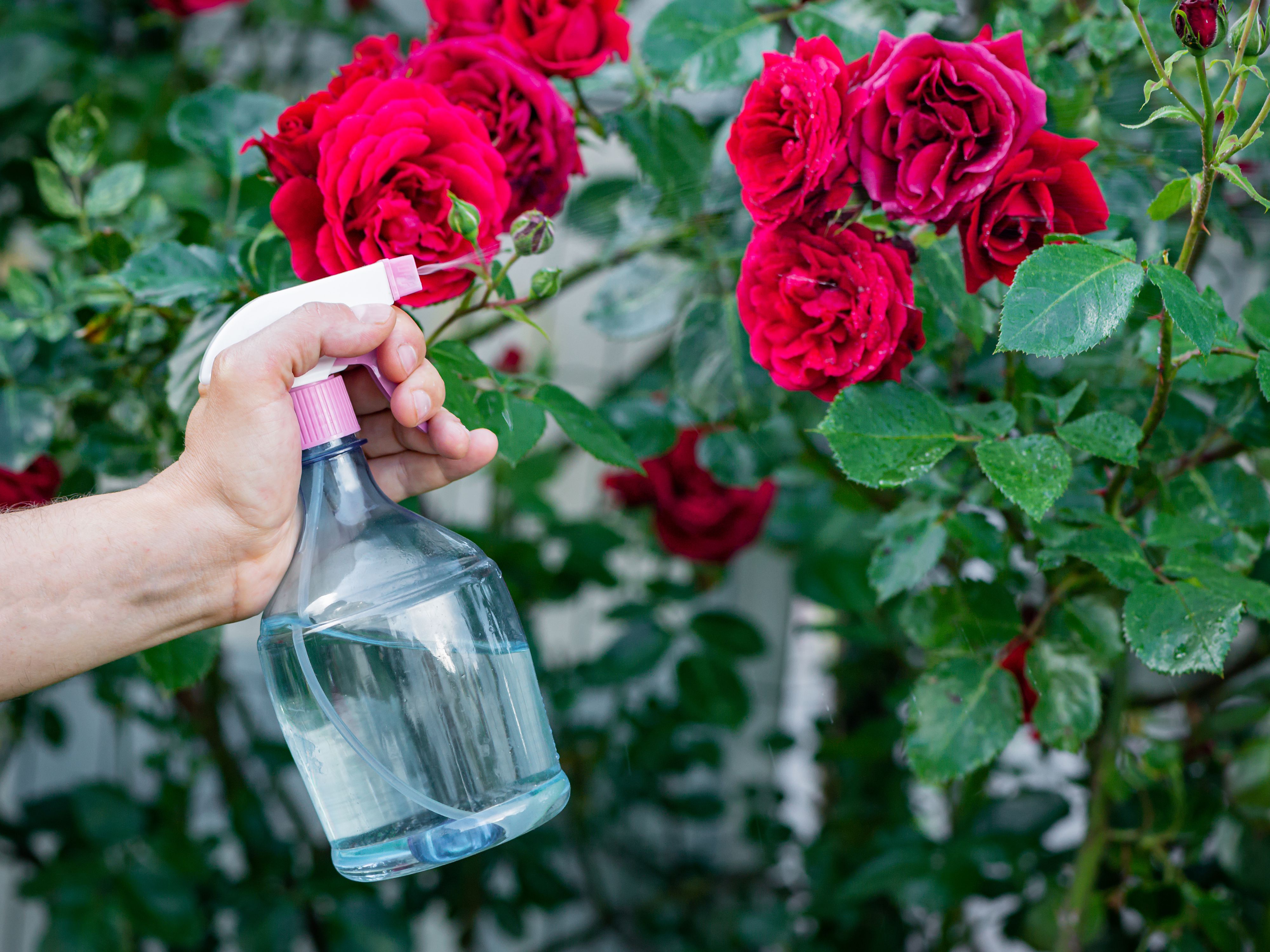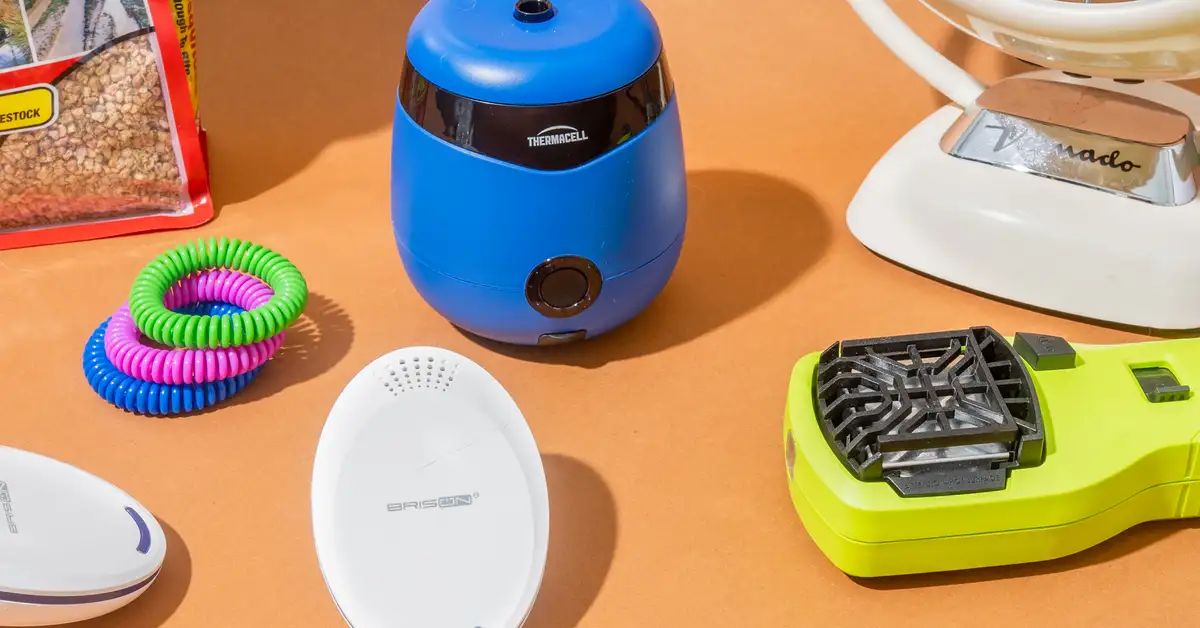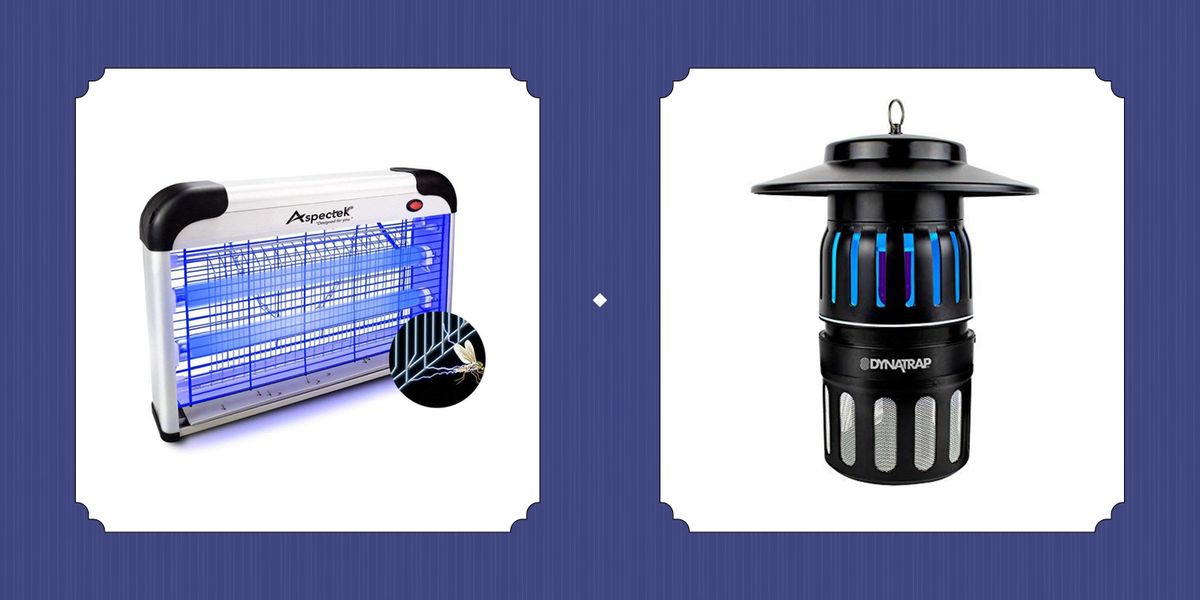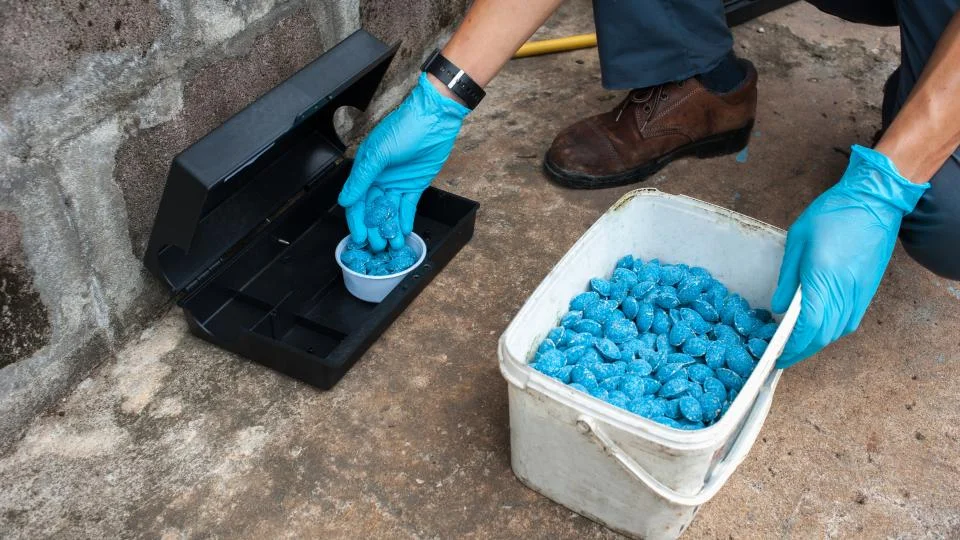Best Aphid Killer For Roses: - Our Top Picks 2024
Philip Jackson Apr 16, 2024 11:58 PM
If you’re looking for best aphid killer for roses you’re in the right place. We spent a lot of time reviewing best aphid killer for roses to come up with the thiings that we think stand apart from the pack in appearance, utility, and value. In this guide, we have researched all the items and provided the finest options accessible today for you.

Overview
Everywhere you look, there are traces of new life and a sense of awakening in the air. The tiny aphids that cling to the stems and leaf undersides of your rose bushes may also be signals of life. In this post, you'll learn how to recognize aphids on roses and use a natural cure to get rid of them.
Aphids can reproduce extremely quickly, which is why the invasion appears to have occurred over night. The female rose aphid can breed without a male mate shortly after hatching from her egg in the early spring.
Viparous aphid mothers give birth to live young, and they can breed through parthenogenesis, which is a type of asexual reproduction. If the environment is mild, certain individuals can continue reproduction parthenogenetically even in the winter, basically giving birth to a small clone of themselves.
The aphid population in your rosebushes can grow enormously over the summer without even a single male present because each small female is capable of reproducing in a matter of weeks. When left unchecked, these little devils may wreak havoc on a rose garden's health over the course of one growing season.
BioAdvanced 043929293566 Bayer Advanced 701110A All in One Rose and Flower Care Granules, 4-Pou, 4-Pound, Assorted
View on Amazon- SCORE9.4AI Score
G Score is a ranking system developed by our team of experts (people love working outdoors with people and plants). It from 0 to 10 are automatically scored by our team based upon the data collected. This score has no relationship or impact from any manufacturer or sales agent websites. Learn more
- BrandBioAdvanced
- Prime
- SCORE8.8AI Score
G Score is a ranking system developed by our team of experts (people love working outdoors with people and plants). It from 0 to 10 are automatically scored by our team based upon the data collected. This score has no relationship or impact from any manufacturer or sales agent websites. Learn more
- BrandBonide
- Prime
- SCORE8.4AI Score
G Score is a ranking system developed by our team of experts (people love working outdoors with people and plants). It from 0 to 10 are automatically scored by our team based upon the data collected. This score has no relationship or impact from any manufacturer or sales agent websites. Learn more
- BrandOrtho
- SCORE8.4AI Score
G Score is a ranking system developed by our team of experts (people love working outdoors with people and plants). It from 0 to 10 are automatically scored by our team based upon the data collected. This score has no relationship or impact from any manufacturer or sales agent websites. Learn more
- BrandGarden Safe
- Prime
- SCORE8.4AI Score
G Score is a ranking system developed by our team of experts (people love working outdoors with people and plants). It from 0 to 10 are automatically scored by our team based upon the data collected. This score has no relationship or impact from any manufacturer or sales agent websites. Learn more
- BrandOrtho
- Prime
Last update on 2024-04-16 / Affiliate links / Images, Product Titles, and Product Highlights from Amazon Product Advertising API
Aphid-killing commercial insecticides are widely available, however these formulations are not species-specific and may harm beneficial insects like aphid predators as well as the aphids themselves.
The "head-start" that these hungry tiny insects have over their predators every spring and even during the winter in warm temperate zones is essential to reducing your aphid population.
While aphid predator species hatch at an average of 60°F every spring, the aphids can hatch at just 50°F and their colonies can develop to great size before their predators are even ready to attack.
Living baby aphids can feed and grow as the sap flows and new growth emerges. During the spring and early summer, the aphid population will reach its peak. As aphid populations increase, a new generation of winged aphids will be born, reducing competition for food on each rose bush.
When dealing with aphid populations, it's best not to wait until your garden is overrun with them, but rather to keep them under control until helpful insects arrive.
Spraying
For roses, we don't recommend spraying them with water to try to dislodge a growing colony from their stems and leaves as many home gardeners do, as it can cause more harm than good.
Because too much moisture is retained in soil and around plants from overwatering, it can cause Powdery Mildew or Black Spot to form.
Many natural sprays are available instead of soaking the plant in water. The "cure" may inflict more damage than the aphids.
Be sure to follow the package guidelines while applying Neem oil or other botanical oils, as not all oils are created equal!
Aphid populations can be reduced by using insecticidal soaps in the spring, but you should stop using them as temperatures rise to avoid injuring other species. Additionally, you should only use oils and soaps that are free of dangerous ingredients.
Using banana and orange peel
Aphids are said to be deterred by the peels of oranges and bananas, according to some gardeners. If you want your roses to look their best, try burying banana peels or orange peels in the dirt surrounding them.
D-Limonene, a naturally occurring molecule found in these fragrant fruit peels, kills aphids and farmer ants by suffocating their waxy coverings. An additional use for orange oil is as a repellent.
Some home gardeners recommend sprinkling your roses with flour to keep aphids from feeding on the sap, believing that this will keep the insects constipated.
The organic garden additive diatomaceous earth kills aphids without being hazardous, however it should not be used on roses that are in bloom because it may affect pollinators.
You can use either isopropyl (rubbing) or ethyl (grain-based) alcohol to prepare a DIY insecticidal spray. Mix equal volumes of 70% (or 140 proof) alcohol and softly spritz your roses with the mixture. To increase the effectiveness of a soapy emulsion, you can add alcohol to it.
Type of insects
Determine what kinds of insects or fungi are attacking your roses so that you may select the most effective treatment. Insecticides that target certain pests are more effective than others. Bt, or Bacillus Thuringiensis, is an insecticide that specifically targets bugs that are larvae.
Choosing the right aphid
The best insecticide for you will be determined by the way you plant and the things that are most important to you. Several weeks or months of protection from insects may be possible with some insecticides; however, these products are most likely made up of chemical varieties.
As an alternative, you might use organic insecticides, but some of these can be washed away by rain. Since your choice of an insecticide will be based on convenience and safety, it is imperative that you know what qualities you are searching for in an insecticide.
Safest
Make sure you're using the safest insecticide for your set-up by doing some research. Because the chemicals in some insecticides are too hazardous to use indoors, they are not recommended for use on roses.
Use more than one product
As a result, you can use two solutions to control your target pests while avoiding the potential dangers of employing harsher insecticides. Most gardeners employ this strategy solely to protect themselves, their pets, and their surrounding environment from pollution and health dangers.
Will vinegar kill aphids on roses?
Vinegar, like dishwashing detergent, is toxic to insects, thus it should only be used before the arrival of aphid predators.
The ants that may be defending your aphid population as well as the pests themselves can be deterred by using apple cider vinegar. The ants won't be able to return if you use a solution of water and apple cider vinegar in a 1:1 ratio. Spraying it directly on the ants will kill them.
Diluting apple cider vinegar further before spraying it on your plants is recommended since many plant species are sensitive to the acidic nature of vinegar. As long as your roses are tolerating the vinegar, you can keep applying it until predator insects appear.
What Plant Keeps Aphids Away?
Insects like greenflies dislike the smell of marigolds, which is why they avoid them. Planting it near roses or other floral plants will keep insects away from the plant since it contains the poisonous pyrethrums that they can't survive.
Can Plants Recover From Aphids?
Yes, plants and roses are able to recover from aphid infestations. Before they attract more pests, remove the afflicted leaves by hand or with clippers and dispose of them in an appropriate location.
How do I protect my roses from bugs?
You can use organic AgroMagen pesticide, for example, as a preventative precaution against rose insects, for example. Spray the roses every now and then to keep them healthy. Feed the rose vitamins and minerals to keep it healthy and ready for any pest attack.
Can you spray soapy water on roses?
Some soap sprays are just as harmless as pesticides. In addition, certain kinds of soap can harm or even kill roses. Another consideration is the amount of soap used. You can benefit from just a few drops of a non-concentrated solution. Potassium salts of fatty acids are required in soap. You can use a mixture of soap and water to clean your hands. No degreasing agents, colorants, or fragrance oils are allowed in the soap.
It doesn't matter if your roses are organic or not if you use insecticides to maintain the habitat of pollinating insects safe.
Some pests, on the other hand, are tenacious and will rob your roses of all their life if you don't do anything to control them.
Hopefully, the information in this post about the ten best insecticides for roses has been helpful.
This post might be useful to your gardening group, so pass it along and have a discussion on which one to use for your roses.
Your thoughts on the best insecticide for roses are welcome in the comments section below. We wish you the best of luck with it and hope that it helped you grow larger and more attractive flowers!
.png)



















